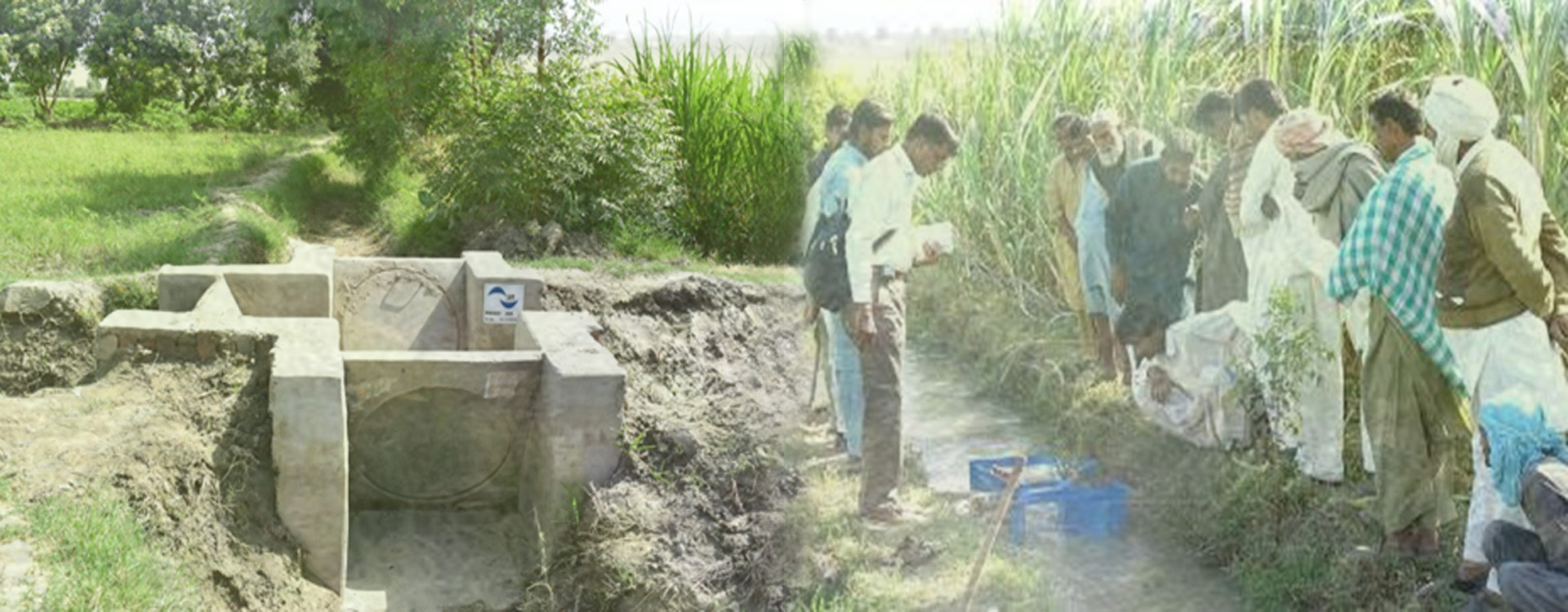
Monitoring, Evaluation, Accountability, and Learning
The impact of Digital Technology has been felt in almost all sectors that are particularly important in human development. E-Governance offer new possibilities for improved essential services system, new ways of citizens’ empowerment and active participation in their societies at both social and political levels. Also, the possibilities of enhanced monitoring, accountability and learning has filled a large gap by encouraging systems that can be managed distantly.

Story Harvesting Project
The project was a qualitative evaluation of the four phases of the complete SASA Approach - a social mobilization approach used for the first time in Pakistan implemented for four years to reduce the tolerance of gender-based violence in 5 districts of KP and Sindh. The evaluation was done using the feminist principles of learning and evaluation with the key focus on ensuring that ownership of the process and data lies with the people who shared their stories.

Evaluation of SASA Approach’s Action Phase & End Line Study
The project used a mixed methodology of quantitative and qualitative data collection with a sample size of around 400 respondents the project was executed in 5 districts of KP and Sindh, Pakistan. The aim was to evaluate that communities interacting with the project have acquired the required knowledge and understanding and are taking “Actions” to reduce the prevalence of gender-based violence in their communities. Also, the overall impact of the approach was determined to document its efficacy in the context of Pakistan.



Annual Programme Review – Water Rights Programme in Pakistan
Annual programme review was conducted by using participatory approach including survey to collect beneficiary feedback about availability of water resources, accessibility, use, participation and satisfaction through qualitative approach i.e. FGDs, KIIs and quantitative methods.
Evaluation of SASA Approach’s Support Phase
The project used a mixed methodology of quantitative and qualitative data collection to explore that communities interacting with the project have acquired the required knowledge and understanding to be able to graduate to the next phase of the project. With a sample size of around 500 respondents the project was executed in 5 districts of KP and Sindh, Pakistan.
Annual Programme Review – Bonded Labour Programme in Pakistan
Annual review of the Bonded Labour programme was carried out in a participatory manner by using a good mix of quantitative survey, focus group discussion and KIIs and observations.

Midterm Evaluation - Water Rights Programme, Pakistan
The Water Rights Programme is five years Irish Aid funded programme being implemented in Mirpur Khas Sindh by local partners LHDP, RDF and SIDA. The programme midterm review was planned in middle point of programme to assess the programme relevance, effectiveness and efficiency and suggesting the course correction on evidence based learning. A mix data collection methodology for quantitative and qualitative data collection was designed and used. The data collection was undertaken by applying remote telephonic process and direct face to face methods.
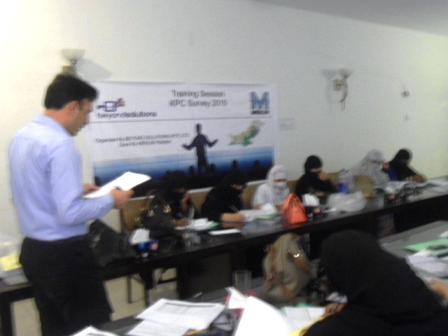
End-Line KPC Survey 2016 for Merlin Pakistan
To assess the degree to which the core program intervention has yielded the intended outcomes concerning the coverage of knowledge and practices at household and community level. The study gathers dis-aggregated level of KPC rates per program impact area with weighted/average coverage per province. The collection of this dis-aggregated level of coverage rates were intended to assess the level of achievements for individual program impact areas as the services were initiated at different points in time on a rolling-on basis in both regions including program impact areas. The study provide Merlin to evaluate the existing services that have been undertaken over the preceding years with an opportunity to inform program design to take corrective measures to best fit program needs and set future program priorities alongside a baseline to compare program’s accomplishments.

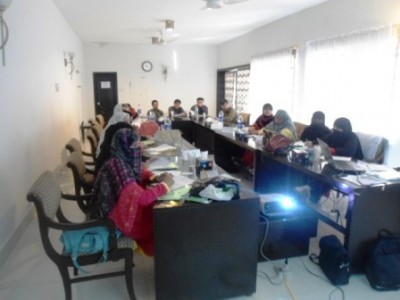
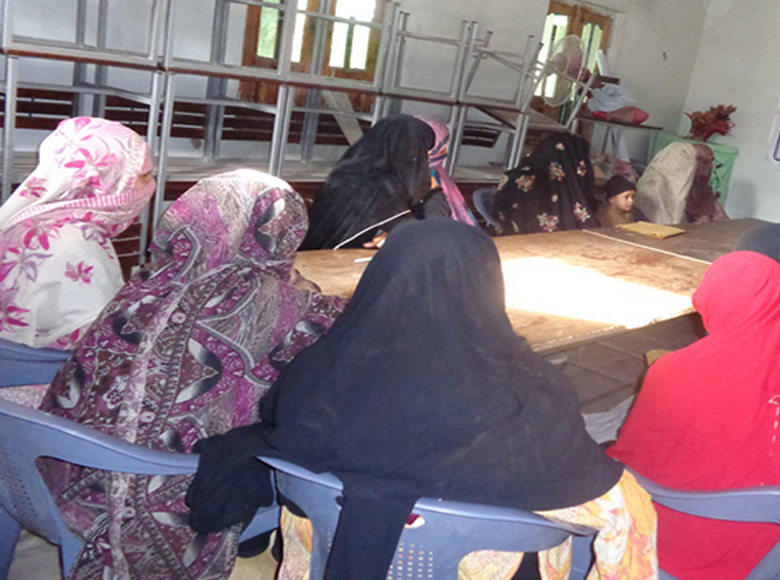
Program Review of the Countering Gender-based Violence in Pakistan
An intensive evaluation of the program that initiated in Pakistan in 2014 till 2019 and was implemented in KP and Sindh. With carefully integrated outcomes ranging from community engagement, provincial advocacy initiatives/campaigns, provision of legal and psychosocial support to survivors, shelter and strengthening of district and provincial governments especially police and lawyers- the project aimed to reduce the tolerance of gender-based violence and ensure safe support to the survivors. The evaluation used a mixed data collection methodology, through deep inquiry and participatory methods.
End-Line KPC Survey 2015 for Merlin Pakistan
In December 2013, Merlin’s established a baseline for Knowledge-Practice-Coverage (KPC) through a quantitative community-based survey. In March 2015, Merlin’s commissioned an end line survey to Beyond Solution, a consulting firm, to undertake an end line survey so that to assess whether Merlin’s health/nutrition program are achieving the intended outcomes of knowledge-practice-coverage (KPC) of the core interventions at household and community level in KPK and Sindh. The study gathers dis-aggregated level of KPC rates per program impact area with weighted/average coverage. The end line survey provides Merlin with opportunity to compare and draw inferences the level of accomplishments and as well to inform program design to take corrective measures to best fit program needs and set future program priorities and directions.
Base-Line KPC Survey 2013 for Merlin Pakistan
This study assesses whether Merlin’s health/nutrition programs are achieving the intended outcomes of knowledge-practice-coverage (KPC) of the core interventions at household and community level in KPK and Sindh. The study gathers dis-aggregated level of KPC rates per program impact area with weighted/average coverage per province. The collection of this dis-aggregated level of coverage rates were intended to assess the level of achievements for individual program impact areas as the services were initiated at different points in time on a rolling-on basis in both regions including program impact areas. The study provide Merlin to evaluate the existing services that have been undertaken over the preceding years with an opportunity to inform program design to take corrective measures to best fit program needs and set future program priorities alongside a baseline to compare program’s accomplishments.
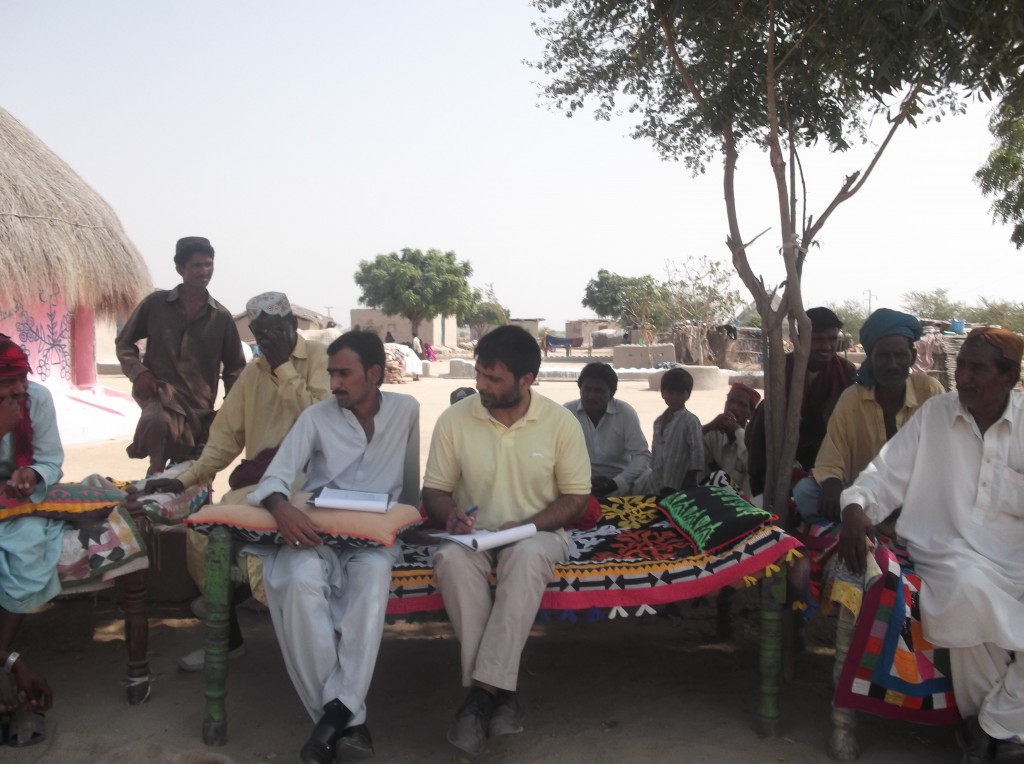
IOM One Room Shelter Project Evaluation in Sindh, Pakistan
The floods that affect the Sindh province of Pakistan created havoc across the region, affecting over 5.3 million people with 1.5 million homes damaged. In response to this, IOM ran a shelter program that evolved from its programming in response to the 2010 floods and was set against a clear and common vision, developed between donors, implementer and government. The program built 22,900 ORSs, with DRR features including lime plaster and raised plinths, with bamboo beams and ring beams. As part of its learning, IOM commissioned Shelter Center to undertake an evaluation of the program. Beyond Solutions as subcontractor for the assignment, participated in the assessment of the program in six districts of Sind Province i.e. Badin, Tando Muhammad Khan, Mirpur Khas, Tharparkar, Umerkot The field component of the evaluation took place in late October 2014, involving a team of six people, visiting villages in all six districts in which the IOM program was implemented. Data was gathered through a series of focus group discussions and individual case study interviews, complemented by key informant interviews with IOM staff and others, including donors. This process was complemented by a review of literature and documentation.